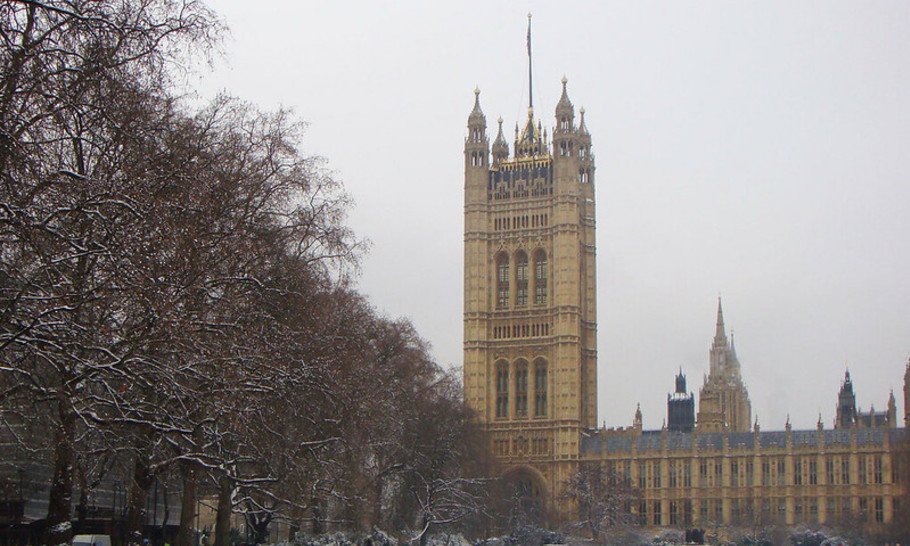The December election, if and when it comes, will be all about Boris

This unloved Parliament will soon be an unlamented ex-Parliament. But it may have a sting in its tail. By attempting to strike a bargain with Jeremy Corbyn — more time to debate the new Withdrawal Agreement, in return for a dissolution as soon as the Bill is passed — Boris Johnson is taking a huge gamble. His cunning plan is fraught with multiple risks.
The first risk attaches to the proposed polling day. No Prime Minister would choose to hold a general election on December 12 if they had any alternative. There is a reason why nobody has gone to the country so late in the year for nearly a century.
The last man to try a December election, Stanley Baldwin, did so only because his predecessor, Bonar Law, was dying of cancer and the new premier felt he needed a mandate. It cost the Tories their majority and ushered in the first Labour Government. January and February are hardly better months than December for elections. In December 1905, Arthur Balfour, who had inherited the premiership as the nephew of his predecessor, Lord (“Bob’s your uncle”) Salisbury, resigned, also in the hope of a fresh mandate. In the calamitous election that followed in February 1906, Balfour lost his seat and the Liberals gained their largest ever majority. They lost it again in the two indecisive winter elections of 1910 and 1911. In a much more recent example, that of February 1974, Edward Heath took the Conservatives down to defeat. The experiment of a mid-winter election has not been repeated since. They are unpopular with party members and the public alike.
Another risk for Boris Johnson stems from the fact that his deal has not yet become law. Even if Labour were to promise to let the Bill pass early next month, they might seek to wreck it by an amendment requiring a second referendum or a customs union. Could a gentleman’s agreement between the Prime Minister and the Leader of the Opposition be relied upon? Even if the former is a gentleman, the latter certainly is not.
Some of Corbyn’s own MPs privately refer to him and his comrades as “Communists”. The Labour leader’s acolytes denounce their enemies as “Blairites” or “Thatcherites”, just as Stalin and his henchmen did “Rightists and Trotskyites” in the purges. If it were to give him an electoral advantage, Corbyn would not hesitate to double-cross Johnson.
A third risk involved in the December 12 election proposal is the role of the EU. The French have demanded that the election date be set in stone before they will agree to an extension to Article 50. We are now less than a week away from a no-deal Brexit, which is due to occur at midnight on October 31 unless a new extension is agreed by then.
Hence Monday is Parliament’s moment of truth. If the Commons refuses to vote for an election by a two-thirds majority, thereby overriding the Fixed-term Parliaments Act, it runs the risk of an accidental no-deal Brexit. The EU dreads this outcome and will therefore grant an extension anyway, but it may impose conditions. We do not know what private assurances have been given to the Prime Minister by EU officials or leaders. What we do know is that until Brexit really is done, it is dangerous for him to put his fate in the hands of his enemies, whether in Brussels or Westminster.
The electorate is still inclined to give Boris the benefit of the doubt. Both MPs and, it seems, voters were impressed by his miraculous achievement in pulling off a last-minute deal. But memories are short and public opinion can be fickle. If he is to win the clear majority he needs to move the country on, the Prime Minister must frame the question that he is putting to the people. He has not been allowed to get Brexit done yet, and his opponents on both sides won’t let him forget his “do or die” promise. The campaign, like Theresa May’s snap election in 2017, may not go as planned.
Yet though Boris Johnson cannot be sure of victory, his sunny optimism and boundless self-confidence are infectious enough to give him the edge. Unlike Mrs May’s, his leadership qualities are not in doubt — and he need not fear a television debate. He may try to make Jeremy Corbyn the focus, but this election is more likely to be all about Boris.
The only Prime Minister to win a thumping majority in a December election, that of 1918, was David Lloyd George. Coming immediately after the Great War, the nation put its faith in the man who had won it, the “Welsh Wizard”. This December election, if and when it happens, will similarly be a referendum on another political prestidigitator, Boris Johnson.
Has he delivered the Brexit for which 17.4 million voted three long years ago? Even if he has, is he the man to take Britain forward into a post-Brexit era? And is a Prime Minister who can conjure treaties out of his hat also capable of reviving the economy and healing our society? In short: are we sure that Boris is up to running the country? On that simple question, the result of this post-Brexit, pre-Christmas election will depend.





